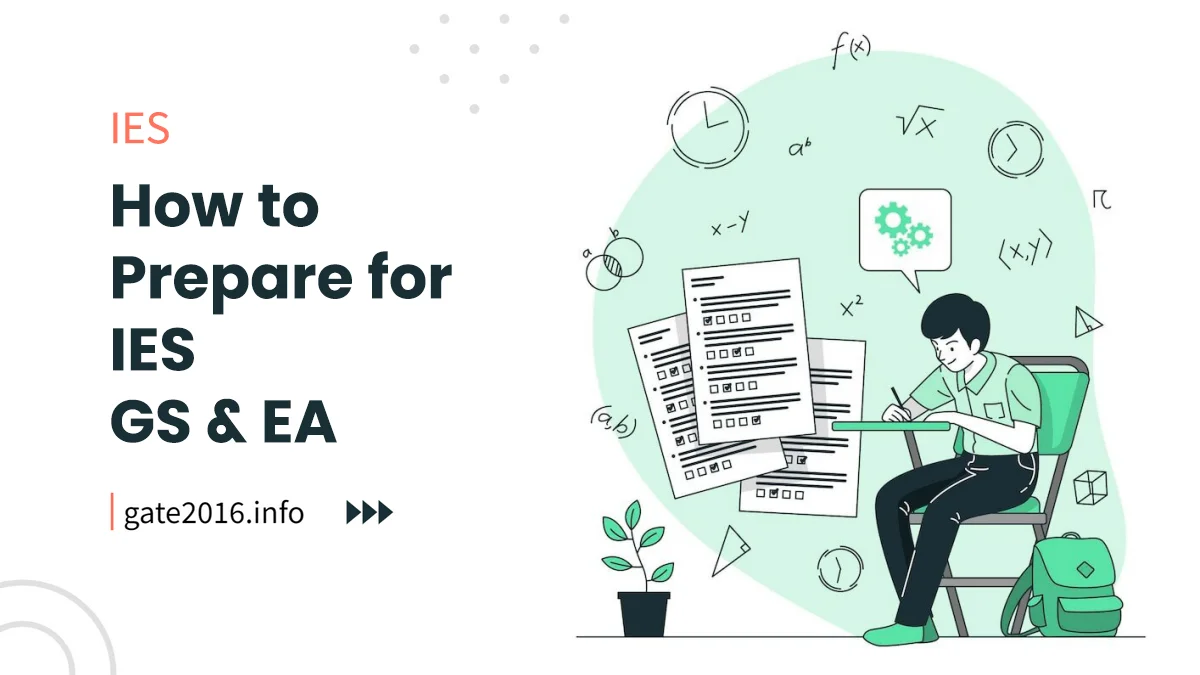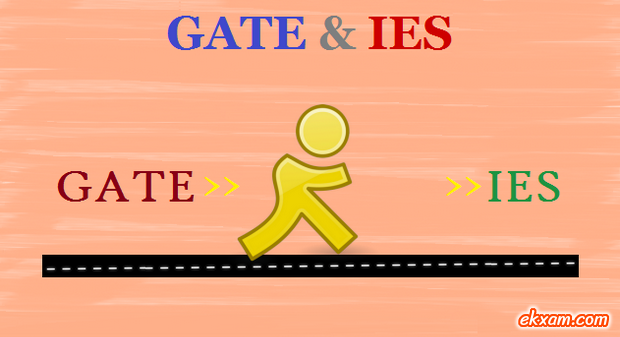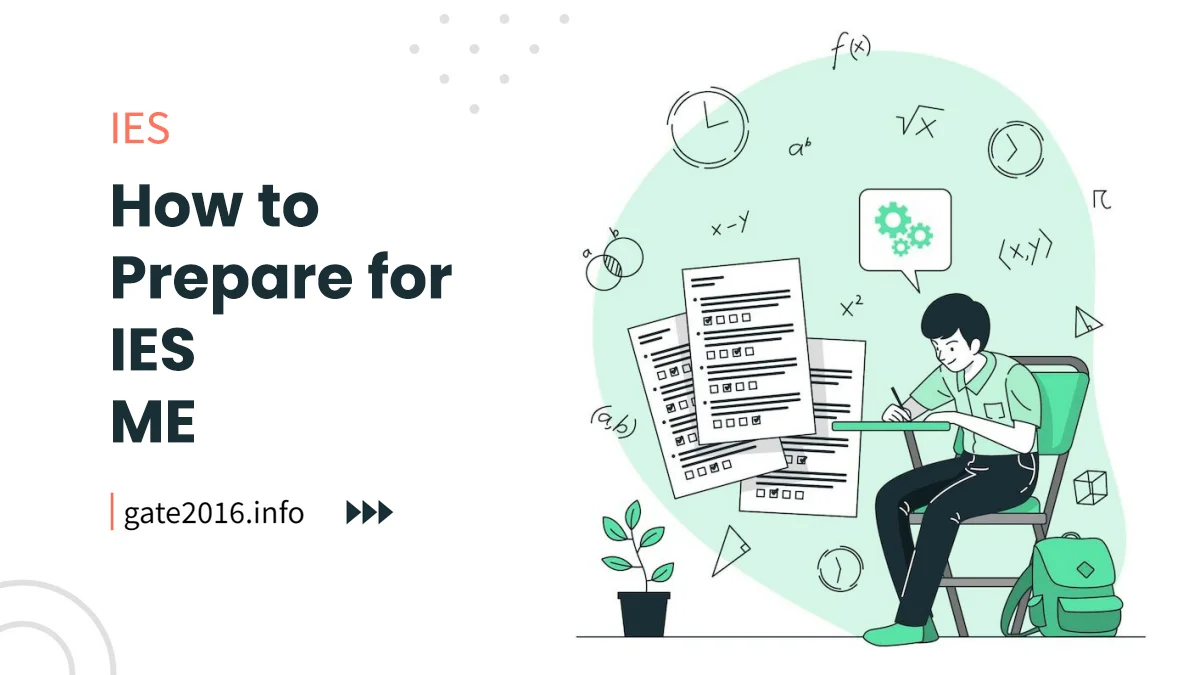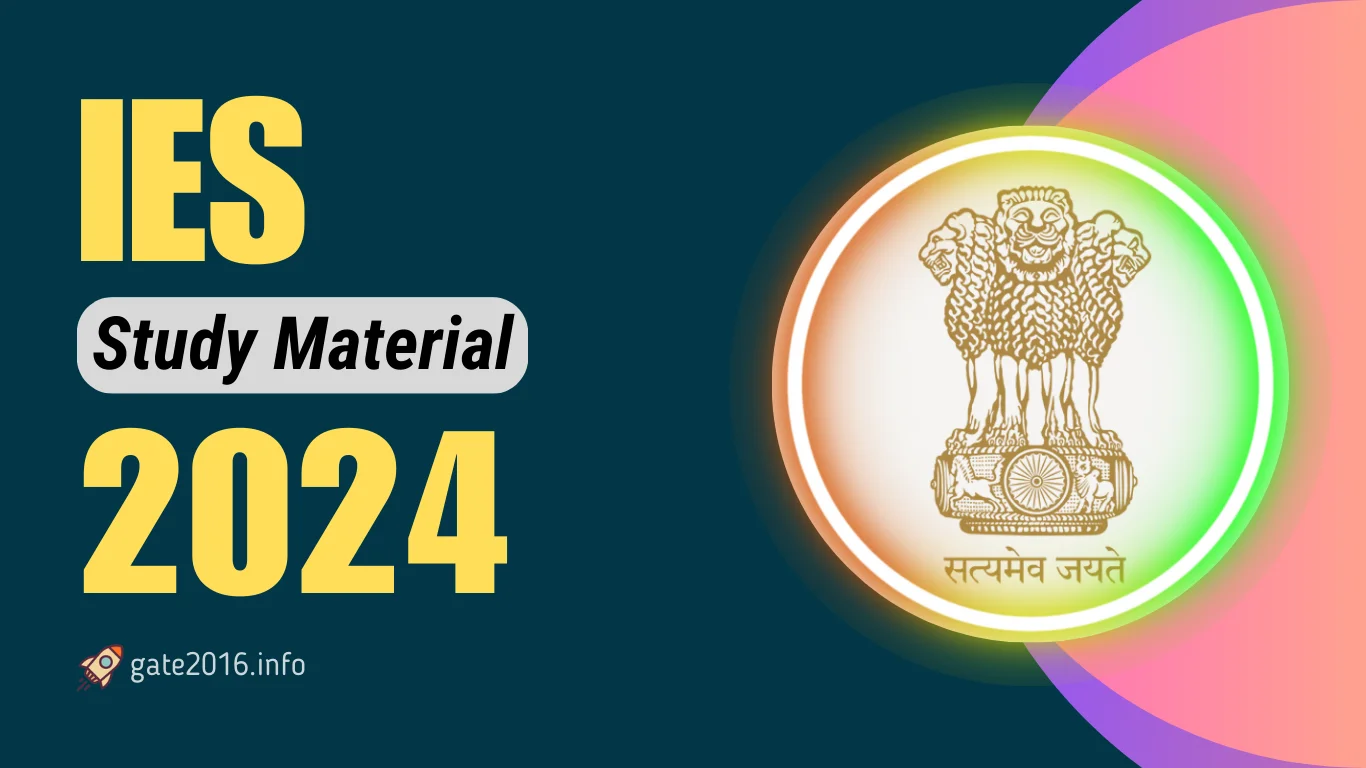Advertisements
Ratings

IES 2024 GS & EA Preparation – The IES (Indian Engineering Services) exam is a prestigious competitive examination for engineering graduates seeking opportunities in various government departments.
Among the different sections of the IES exam, the General Studies and Engineering Aptitude section holds significant importance.
This section assesses candidates on their analytical and general awareness skills, making it a crucial aspect of the overall exam.
In this comprehensive guide, we will delve into the strategies and techniques required to excel in the IES General Studies and Engineering Aptitude section.
Contents
- 1. Understanding the Significance of IES General Studies & Engineering Aptitude
- 2. Understanding the IES Exam Pattern
- 3. Syllabus Overview
- 4. Creating a Study Plan
- 5. Study Materials and Resources
- 6. General Studies Section Preparation
- 7. Engineering Aptitude Section Preparation
- 8. Developing Analytical Skills
- 9. Time Management Strategies
- 10. Effective Note-taking
- 11. Practicing Mock Tests and Previous Papers
- 12. Enhancing Problem-Solving Abilities
- 13. Staying Updated with Current Affairs
- 14. Ethics and Values in Engineering Profession
- 15. Reading Comprehension and Communication
- 16. Coping with Exam Stress
- 17. Final Weeks’ Preparation
- 18. On the Exam Day
- 19. Post-Exam Analysis and Next Steps
- Conclusion: Excelling in IES General Studies & Engineering Aptitude
- Additional Resources and References
- IES General Studies & Engineering Aptitude Guidance
- IES General Studies & Engineering Aptitude Preparation FAQs
- IES Total Information & Guidance
1. Understanding the Significance of IES General Studies & Engineering Aptitude
The General Studies and Engineering Aptitude section evaluates candidates’ general knowledge, reasoning, and ethical understanding.
This section is designed to assess candidates’ capabilities beyond their technical knowledge, highlighting their overall awareness and analytical thinking.
2. Understanding the IES Exam Pattern
Before diving into preparation, let’s gain a clear understanding of the IES exam pattern and the role of the General Studies & Engineering Aptitude section:
- Preliminary Examination: This stage includes two papers – Paper I (General Studies & Engineering Aptitude) and Paper II (Technical Paper specific to the candidate’s engineering discipline).
- Main Examination: This stage comprises a conventional paper that focuses on the candidate’s engineering discipline.
3. Syllabus Overview
3.1 General Studies Section
This section assesses candidates’ general knowledge and ethical understanding. The key topics include:
- Current Affairs and Events.
- Indian Polity and Economy.
- Geography and Environment.
- Ethics and Values in Engineering Profession.
3.2 Engineering Aptitude Section
This section evaluates candidates’ analytical reasoning, mathematical problems, and scientific temper. The topics include:
- Analytical Reasoning.
- Mathematical Problems and Concepts.
- Engineering Mathematics and Basics.
- Scientific Temper and Communication.
4. Creating a Study Plan
A well-structured study plan is essential for efficient preparation. Balance your time across various subjects and allocate dedicated time for the General Studies & Engineering Aptitude section.
Table 1: Sample Study Plan
| Week | Subjects/Topics | Time Allocation |
|---|---|---|
| 1-2 | Current Affairs, Indian Polity & Economy | 10 hours/week |
| 3-4 | Geography & Environment, Analytical Reasoning | 8 hours/week |
| 5-6 | Mathematical Problems, Engineering Ethics | 10 hours/week |
5. Study Materials and Resources
Choose appropriate study materials that cover both general awareness and analytical skills. Utilize recommended books and online resources to enhance your preparation.
Table 2: Recommended Study Resources
| Subject | Books | Online Resources |
|---|---|---|
| General Studies | “Indian Polity” by M. Laxmikanth | UPSC websites, Current Affairs Magazines |
| Analytical Reasoning | “A Modern Approach to Verbal & Non-Verbal Reasoning” by R.S. Aggarwal | Online Reasoning Practice Platforms |
| Engineering Aptitude | “Quantitative Aptitude” by R.S. Aggarwal | NPTEL Engineering Aptitude Lectures |
6. General Studies Section Preparation
6.1 Current Affairs and Events
- Stay updated with national and international events.
- Regularly read newspapers, watch news, and follow reliable online news sources.
- Make concise notes of important events for quick revision.
6.2 Indian Polity and Economy
- Understand the structure of the Indian government and its various functions.
- Study key economic concepts and government policies related to the economy.
6.3 Geography and Environment
- Familiarize yourself with geographical concepts, important landmarks, and major physical features.
- Study environmental issues, conservation efforts, and ecological challenges.
6.3 Ethics and Values in Engineering Profession
- Understand ethical practices in engineering.
- Analyze case studies involving ethical dilemmas and professional conduct.
7. Engineering Aptitude Section Preparation
7.1 Analytical Reasoning
- Practice solving analytical puzzles and problems.
- Develop skills in logical reasoning and data interpretation.
7.2 Mathematical Problems and Concepts
- Revise essential mathematical concepts such as algebra, geometry, and calculus.
- Solve mathematical problems with a focus on accuracy and speed.
7.3 Engineering Mathematics and Basics
- Brush up on fundamental engineering mathematics concepts.
- Understand basic engineering principles and their applications.
7.4 Scientific Temper and Communication
- Study scientific methods and scientific inquiry.
- Enhance written communication skills for descriptive answers.
8. Developing Analytical Skills
Table 3: Benefits of Developing Analytical Skills
| Benefit | Description |
|---|---|
| Problem-Solving Skills | Ability to analyze and solve complex problems |
| Data Interpretation | Skill in interpreting data and drawing conclusions |
| Logical Reasoning | Enhancing logical thinking and decision-making |
9. Time Management Strategies
Efficient time management is essential during the exam:
- Preliminary Examination: Allocate time based on the number of questions in each paper.
- Main Examination: Distribute time based on the complexity of questions.
10. Effective Note-taking
Taking concise notes helps in quick reference and revision:
- Summarize key concepts, formulas, and important events.
- Use abbreviations and symbols for faster note-taking.
11. Practicing Mock Tests and Previous Papers
Mock tests and previous year papers are invaluable for preparation:
Table 4: Benefits of Practicing Mock Tests
| Benefit | Description |
|---|---|
| Simulating Exam Conditions | Experience real exam conditions and time constraints |
| Assessing Preparedness | Evaluate your level of preparedness and identify weak areas |
| Improving Time Management | Enhance your time management skills during the exam |
12. Enhancing Problem-Solving Abilities
Practice a variety of problems to enhance your skills:
- Solve numerical, analytical, and technical problems regularly.
- Break down complex problems into smaller, manageable steps.
13. Staying Updated with Current Affairs
Stay informed about the latest developments:
- Follow reputable news sources and journals.
- Focus on technological advancements and their impact.
14. Ethics and Values in Engineering Profession
Ethical understanding is crucial for the Engineering Aptitude section:
- Understand ethical principles and their application in engineering scenarios.
- Analyze case studies involving ethical dilemmas and professional choices.
15. Reading Comprehension and Communication
Effective reading and communication skills are vital:
- Enhance your reading speed and comprehension.
- Practice clear and concise written communication.
16. Coping with Exam Stress
Stress management is essential for optimal performance:
- Practice relaxation techniques like deep breathing and meditation.
- Maintain a healthy lifestyle with regular exercise and proper sleep.
17. Final Weeks’ Preparation
In the weeks leading up to the exam, focus on fine-tuning your knowledge:
- Revise complex topics and formulas.
- Take full-length mock tests to simulate exam conditions.
18. On the Exam Day
Stay calm and focused on the exam day:
- Read questions carefully before attempting.
- Allocate time based on question complexity.
19. Post-Exam Analysis and Next Steps
Evaluate your performance and plan for the future:
- Analyze your strengths and areas for improvement.
- Consider advanced studies or career opportunities based on your results.
Conclusion: Excelling in IES General Studies & Engineering Aptitude
Following these comprehensive strategies equips aspiring engineers with the tools needed for successful IES General Studies & Engineering Aptitude exam preparation.
Success in this section not only demonstrates analytical and ethical awareness but also opens doors to prestigious career options.
Additional Resources and References
Explore the recommended study resources, practice papers, and online platforms for additional study materials and references.
These resources will further enhance your understanding and preparation for the IES General Studies & Engineering Aptitude exam.
IES General Studies & Engineering Aptitude Guidance
- How to Prepare for IES General Studies: A Comprehensive Guide
- IES GS Syllabus 2024: Prelims
- IES GS Books 2024: Prelims
- IES General Studies & Engineering Aptitude Model Questions – Official
IES General Studies & Engineering Aptitude Preparation FAQs
What is IES General Studies and Engineering Aptitude (GS&EA)?
IES GS&EA is a paper in the Indian Engineering Services (IES) examination conducted by the Union Public Service Commission (UPSC) in India.
It assesses candidates' knowledge of general studies and their aptitude for engineering, including ethical and societal issues.
What are the important topics to focus on for IES GS&EA preparation?
Key topics to focus on include:
- Current affairs and general awareness.
- Environmental and ethical issues.
- Engineering mathematics and analytical reasoning.
- Engineering aptitude and ethics in engineering practice.
How should I prepare for the IES GS&EA exam?
Effective preparation involves a comprehensive approach:
- Stay updated with current affairs, national and international events, and government policies.
- Practice analytical and reasoning skills.
- Familiarize yourself with engineering ethics and societal issues.
- Solve previous years' question papers and practice mock tests.
Are there any recommended books or resources for IES GS&EA preparation?
While there are no specific textbooks for GS&EA, you can use general knowledge books, newspapers, and online resources to stay updated with current affairs.
Additionally, practice analytical and engineering aptitude questions available in various competitive exam guides and websites.
What is the exam pattern for IES GS&EA, and how should I approach it?
IES GS&EA is a conventional (written) paper. It consists of a mix of multiple-choice questions and descriptive questions related to general studies, engineering aptitude, and ethical issues.
To approach it effectively, allocate sufficient time to read and understand the questions, and answer them comprehensively.
Brush up on engineering ethics and societal issues, as they are often part of the examination.
Recent Posts
- IES 2024 Expected Cut-off Marks: Prelims and Mains
- How to Prepare for IES Electrical Engineering: A Comprehensive Guide
- How to Prepare for IES Electronics Engineering: A Comprehensive Guide
- IES 2024 Vacancy – Branch-wise and Category-wise Distribution
Related Tags
How to prepare for ies general studies quora 2024, How to prepare for ies general studies pdf 2024, ese general studies syllabus 2024, ese general studies notes pdf 2024, ies master 2024, ies general studies notes 2024, ies general studies question paper 2024, general studies for ies 2024
| IES/ESE GS & EA Books |
| IES/ESE Guide Books |
IES Total Information & Guidance
Click below given links to get further information.





